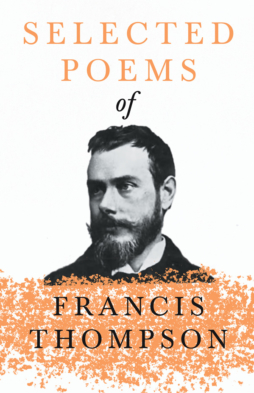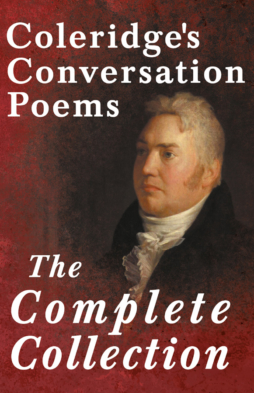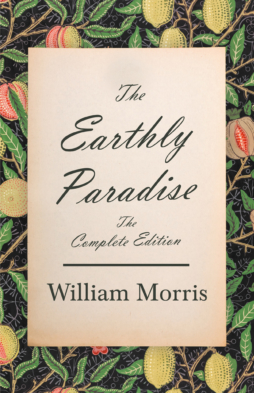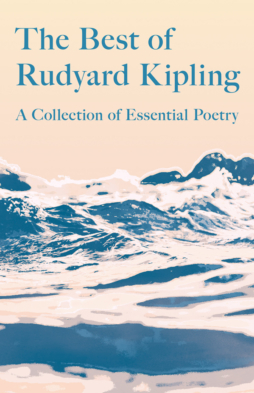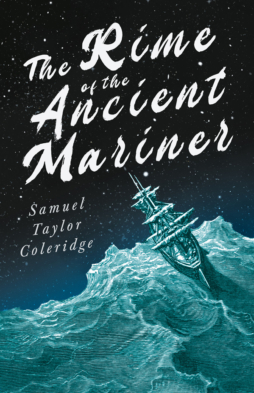In Xanadu did Kubla Khan
A stately pleasure-dome decree:
Where Alph, the sacred river, ran
Through caverns measureless to man
Down to a sunless sea.
So twice five miles of fertile ground
With walls and towers were girdled round;
And there were gardens bright with sinuous rills,
Where blossomed many an incense-bearing tree;
And here were forests ancient as the hills,
Enfolding sunny spots of greenery.
But oh! that deep romantic chasm which slanted
Down the green hill athwart a cedarn cover!
A savage place! as holy and enchanted
As e’er beneath a waning moon was haunted
By woman wailing for her demon-lover!
And from this chasm, with ceaseless turmoil seething,
As if this earth in fast thick pants were breathing,
A mighty fountain momently was forced:
Amid whose swift half-intermitted burst
Huge fragments vaulted like rebounding hail,
Or chaffy grain beneath the thresher’s flail:
And mid these dancing rocks at once and ever
It flung up momently the sacred river.
Five miles meandering with a mazy motion
Through wood and dale the sacred river ran,
Then reached the caverns measureless to man,
And sank in tumult to a lifeless ocean;
And ’mid this tumult Kubla heard from far
Ancestral voices prophesying war!
The shadow of the dome of pleasure
Floated midway on the waves;
Where was heard the mingled measure
From the fountain and the caves.
It was a miracle of rare device,
A sunny pleasure-dome with caves of ice!
A damsel with a dulcimer
In a vision once I saw:
It was an Abyssinian maid
And on her dulcimer she played,
Singing of Mount Abora.
Could I revive within me
Her symphony and song,
To such a deep delight ’twould win me,
That with music loud and long,
I would build that dome in air,
That sunny dome! those caves of ice!
And all who heard should see them there,
And all should cry, Beware! Beware!
His flashing eyes, his floating hair!
Weave a circle round him thrice,
And close your eyes with holy dread
For he on honey-dew hath fed,
And drunk the milk of Paradise.
Born in Devon, England in 1772, Samuel Taylor Coleridge is often regarded as one of the most important figures in English poetry. His influence on his fellow poets at the time was extreme, with many (including a young William Wordsworth, with whom he later launched the Romantic poetry movement) turning to him for professional advice.
His most famous poems include The Rime of the Ancient Mariner, Christabel, and Kubla Khan, along with his collection of Conversation Poems. Influenced greatly by the natural world around him, Coleridge is credited with creating the idea of ‘Conversational Poetry’ – ‘the idea of utilising common, everyday language to express profound poetic images’. Such a technique can be easily seen in some of the later great poems, particularly from Wordsworth himself.
A Vision in a Dream
It is known that Coleridge wrote one of his most famous poems, Kubla Khan when waking up from an Opium induced sleep. His fantastical dreams were the inspiration for what is now regarded as one of his best pieces of work, although the version that remains was much shorter than originally intended after he was interrupted while writing.
In 1816, Coleridge penned an introduction to his poem, explaining how it came about and the unfortunate interruption by somebody at his chamber door:
‘In the summer of the year 1797, the Author, then in ill health, had retired to a lonely farmhouse between Porlock and Linton, on the Exmoor confines of Somerset and Devonshire. In consequence of a slight indisposition, an anodyne had been prescribed, from the effects of which he fell asleep in his chair at the moment that he was reading the following sentence, or words of the same substance, in “Purchas’s Pilgrimage:” “Here the Khan Kubla commanded a palace to be built, and a stately garden thereunto. And thus ten miles of fertile ground were inclosed with a wall.” The author continued for about three hours in a profound sleep, at least of the external senses, during which time he has the most vivid confidence, that he could not have composed less than from two to three hundred lines; if that indeed can be called composition in which all the images rose up before him as things, with a parallel production of the correspondent expressions, without any sensation or consciousness of effort. On awaking he appeared to himself to have a distinct recollection of the whole, and taking his pen, ink, and paper, instantly and eagerly wrote down the lines that are here preserved. At this moment he was unfortunately called out by a person on business from Porlock, and detained by him above an hour, and on his return to his room, found to his no small surprise and mortification, that though he still retained some vague and dim recollection of the general purpose of the vision, yet, with the exception of some eight or ten scattered lines and images, all the rest had passed away like the images on the surface of a stream into which a stone has been cast, but, alas! without the after restoration of the latter:
Then all the charm
Is broken—all that phantom-world so fair
Vanishes, and a thousand circlets spread,
And each mis-shape the other. Stay awhile,
Poor youth! who scarcely dar’st lift up thine eyes—
The stream will soon renew its smoothness, soon
The visions will return! And lo, he stays,
And soon the fragments dim of lovely forms
Come trembling back, unite, and now once more
The pool becomes a mirror.
Yet from the still surviving recollections in his mind, the Author has frequently purposed to finish for himself what had been originally, as it were, given to him. Σαμερον αδιον ασω: but the to-morrow is yet to come.’
From September 2021 our #PoemoftheWeek emails and blogs will be changing to #PoemoftheMonth. This way, we can continue posting classic poems once a month, along with more of our best content. Sign-up for the newsletter below to make sure you don’t miss out.


